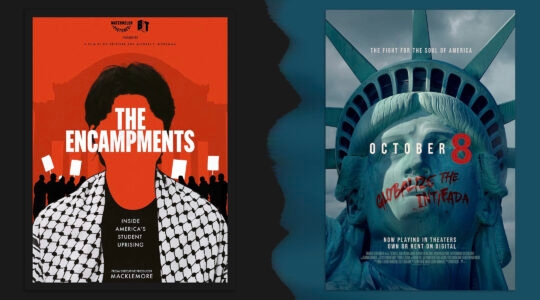JERUSALEM (JTA) — One of Human Rights Watch’s common refrains is the demand for “independent investigations” based on the allegation that Israel is unable to conduct its own inquiries.
Officials at the organization have repeated the claim more than 50 times since the launch in 2000 of what came to be called the second intifada, through the Lebanon War in 2006 and the fighting in Gaza last January. By contrast, they insist that Human Rights Watch “researchers” are capable of professional and, above all, moral analysis. They portray themselves as the objective examiners of the responses of the Israeli military to attacks from Hamas, Hezbollah and other terrorist groups.
So who are these Human Rights Watch researchers who seek to serve as prosecutor, judge and jury in leveling allegations against Israel? What professional qualifications as human rights researchers do they actually possess, and what evidence is there of the open-minded search for truth and rejection of pre-formed ideological conclusions?
The organization’s Middle East and North Africa division is led by Sarah Leah Whitson and Joe Stork, each of whom has a long record of anti-Israel activism. Stork was a founder and spent 20 years as writer and editor for the radical Middle East Report, or MERIP. Whitson organized anti-Israel events at the New York branch of the Arab-American Anti-Discrimination Committee.
Among those working with them at Human Rights Watch are Lucy Mair (from Electronic Intifada), Darryl Li (also a MERIP activist) and Nadia Barhoum, a Palestinian campus organizer at the University of California, Berkeley.
To be fair, Stork has claimed that his ideological beliefs of the 1970s are “contrary to the views I have expounded for decades now.” But his 1992 article on “U.S. policy and the Palestine Question” used the same radical vocabulary, attacking “Zionist hegemony,” new colonialists, American-Israeli conspiracies, “the elaborate ritual labeled the peace process” and Israel’s democratic values.
Whitson’s activities at Human Rights Watch reflect the same hostility to Israel. She wrote a letter in 2004 to Caterpillar Inc. urging the heavy-equipment company to stop selling bulldozers to the Israeli army, saying they were “being used to illegally destroy Palestinian homes.” She claimed that “continued sales will make the company complicit in human rights abuses.” There was no mention of Palestinian terrorism or the dilemmas facing Israel in defending its citizens.
In Human Rights Watch’s “research reports” on Israel, the bias of Whitson, Stork and others takes the place of the promised “accuracy, objectivity, transparency and credibility.” In many instances, the Israel-related Human Rights Watch reports from the past nine years are based primarily on “Palestinian eyewitness testimony” — testimony that is not accurate, objective or credible but serves the political goal of indicting Israel.
For example, in the recent report co-authored by Stork alleging that Israeli soldiers shot Palestinians in Gaza waving white flags, the first of seven alleged incidents includes extensive quotes from the Abd Rabbo family, whose stories changed numerous times from the initial versions told to journalists in January. At the same time, evidence that does not support the war crimes charge is absent, such as the YouTube clips showing clear use by Palestinians of human shields, and of white flags used to protect terrorists and lure Israeli troops into ambushes.
Instead, Human Rights Watch includes pages of irrelevant detail that create a facade of expertise, including satellite images, medical reports and quotes from Geneva conventions.
The same pattern was followed in HRW publications on the 2006 Lebanon War, and in the reports condemning Israel for the use of white phosphorous and drone attacks in Gaza.
Whitson hyped these activities at a May dinner in Riyadh, Saudi Arabia, along with the need to counter “pro-Israel pressure groups” that seek to impugn the reliability of the allegations. (Infrequent Human Rights Watch reports condemning Palestinian and Hezbollah attacks are fig leaves to claim balance and, in contrast to the publications on Israel, carry no operative agenda such as international inquiries, war crimes trials, sanctions or arms embargoes.)
Instead of giving credence to the bogus research and allegations by Human Rights Watch, what is needed is an independent investigation of the organization’s leadership and a cleaning out of its Middle East and North Africa division. This would be a major step toward reversing the deep anti-Israel bias that has done so much damage to universal human rights.
(Gerald Steinberg is the executive director of NGO Monitor and a professor of political science at Bar-Ilan University.)
JTA has documented Jewish history in real-time for over a century. Keep our journalism strong by joining us in supporting independent, award-winning reporting.





